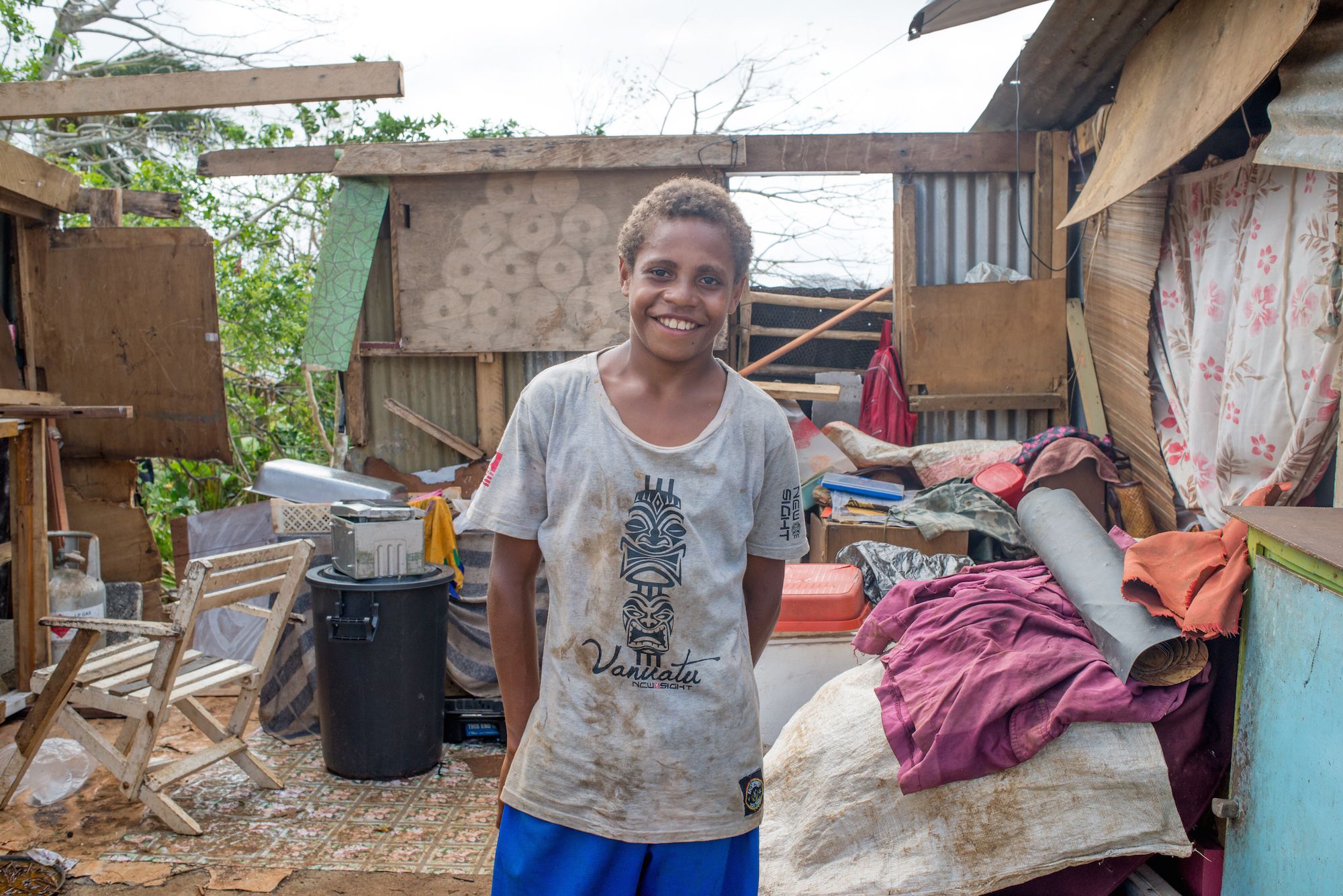A few days after cyclone Pam destroyed his home, a twelve-year-old boy taught me a paradoxical lesson about happiness
Originally published on the Pacific Policy blog
Yesterday, during an interview for a documentary film about climate change, I was asked how Vanuatu came to be known as the Happiest Country in the World. On the face of it, the title is quite apt. Wherever you go in Vanuatu, you will find smiling faces, warm welcomes and open hearts.
Even in the aftermath of cyclone Pam, which directly affected half the population and badly damaged dozens of their islands, Ni Vanuatu people still managed to smile and laugh. I confess that even after a decade living here, I found it astonishing that people would show such grace in the face of adversity.
In the badly affected Malapoa Waetwud neighbourhood, a man calmly described how he and his family would live off fallen fruit for a few days, then they’d dig up whatever hadn’t rotted in the ground; but after that, he wasn’t sure where the next meal was going to come from. On the southern island of Tanna, which was utterly devastated by 230 Kph winds, I sat with a group of mamas in the shade of the only remaining tree trunk in that part of the village, and we laughed and gently teased each other as we passed the time.
And it’s not that they were oblivious. On the contrary. Only half an hour earlier a village elder came up to me, looked me in the eye and spoke with brutal simplicity: ‘I nogat wan samting.’
‘There’s nothing left.’
It took me days—weeks to be honest—to understand how people could remain light-hearted in the face of the loss of everything of value in their lives. Read more “On be(com)ing happy”



